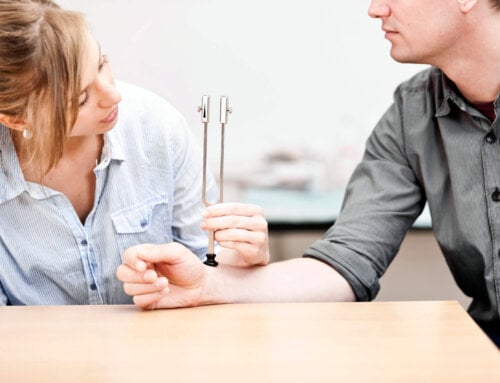An article in Endocrine Today noted that “American adults are more likely to go without health care than those in other high income industrialized nations. The reasons include: trouble paying for medical bills, time consuming paperwork even when covered by insurance, making time for the actual appointments or because of dealing with previous insurance disputes.” The survey was done by the Common Wealth Fund which included 11 developed countries. Over 37% of Americans skipped medical care, did not visit a health care provider when ill, and did not fill prescriptions due to costs. Even though many people who have diabetes have no symptoms, they should follow up with their physician since it can eventually involve multiple organ systems and cause future complications.
This week I taught two middle-aged (50s) gentlemen who had not seen a medical professional in years. They had already developed retinopathy and neuropathy (diabetes complications), even though they were unaware they even had diabetes.
Diabetes can often be self-managed from day to day. Let’s look at the things you can do to help with your diabetes. Together, with the expertise of your health care provider you should be able to get control of your diabetes.
Purchase a pedometer or “fit bit” type of band.
Exercise must become part of your everyday life to help with your diabetes. Exercise increases your insulin sensitivity and is a proven way to help lower blood glucose levels. Owning a piece of equipment which monitors steps or heart rate, like a pedometer, is a motivating factor for some people. Going on a group walk or using a headset can also be beneficial. If this would help keep you active, consider these options. Other people are able to go out for a walk without anything except a good pair of socks and sneakers. You decide but get it done. It can also include classes like Zumba, a gym membership, walking in the pool or going for a bicycle ride.
Carry glucose tablets or gel
Hypoglycemia (or low blood sugar) sounds benign, but can result in further problems – especially in the elderly. It can also make you feel awful for hours. Having a simple sugar source on hand can resolve the issue in 15 minutes. Be prepared.
Get a blood pressure monitor
Get a blood pressure monitor and use it at home at different times of the day. Heart attacks and strokes are still the leading cause of death for people with diabetes. Knowing your blood pressure numbers and what affects it is important since blood pressure control is imperative.
Use your glucose meter
Many patients do not understand the purpose of blood glucose testing and often do not bother to test. Testing at various times of the day can offer information about your food choices, portion sizes as well as activity level. Sometimes an underlying infection is caught just by seeing an elevation in blood sugars. Find a diabetes educator to give you the basics on using a meter and what it all means.
Have a dental exam twice a year, or as recommended.
Gum disease that is not treated can cause blood sugars to soar. Try flossing before you brush your teeth, and chew gum with Xylitol to help when you can’t brush.
Have a complete eye exam.
You can go to an optometrist or ophthalmologist, but make sure that you have an exam with a dilatation to check the retina since retinopathy has no symptoms. Wear sunglasses as an easy way to add protection to your eyes. Consider taking a supplement with Lutein for eye health.
Keep your feet covered at all times.
Patients are always confused when I ask if they walk without shoes in the house. Foot complications are the leading cause of hospitalization for people with diabetes according to Endocrine Today. Keeping your feet clean, moisturized and toe nails clipped properly is easy and worthwhile. Feet that are covered with socks and shoes is your best bet for safety. Wear slippers at home. Summer is coming so invest in pool or water shoes. Consult a podiatrist if you suspect an infection, have in-grown toe nails, uncontrolled fungus or an open wound. Do not self-treat!
Avoid tobacco
Cigars are a problem as well as cigarettes. They both affect your lungs, heart, oral cavity, lips, tongue and increase your risk of several types of cancer. Consider what second-hand smoke does to your family and friends. Understand that nicotine adds extra stress to your heart. Diabetes increases your risk of peripheral vascular disease as well as nerve problems and so does smoking.
Stay hydrated with water
Most people are often in mild dehydration, especially when they exercise, and even more during the summer months. Unless you are on fluid restrictions, drink throughout the day. Fruit juice, sweet tea, soda and sport drinks should be totally eliminated. You can drink any sugar-free fluid.
Get your Flu Shot
Get your flu and pneumonia shots as directed by the CDC.
Eating healthy
Eat a well balanced diet with fresh vegetables and fruits, lean protein, low-fat dairy, and fiber-rich carbohydrates. Add calcium, Vitamin D, magnesium and Omega 3s. Decrease sodium intake. Eliminate fried foods. Watch your saturated fat intake. Do not skip meals, and watch portion sizes at each meal. Have a small bedtime snack of nutritious food.
These are steps you can take to help control your diabetes. If you have access to health care and take the time to use it, your complication rates will further decrease. A recent study done on 2000 people published in Endocrine Today states that “those who had regular testing of their A1C (3 month blood test), blood pressure, lipids, and urine micro albumin by a physician have less chance of a stroke, heart attack, CHF and renal disease.”
If all of these measures do not help control your numbers, then work with your physician on taking medications. Know the correct way to take your medications by asking your pharmacist, physician or educator. Do not self-regulate your medications. There are many old and new medications which your physician can choose from to control blood sugar, cholesterol and blood pressure. Diabetes can be controlled and most of the control comes from you! Get involved!
NOTE: Consult your doctor first to make sure my recommendations fit your special health needs.













Leave A Comment